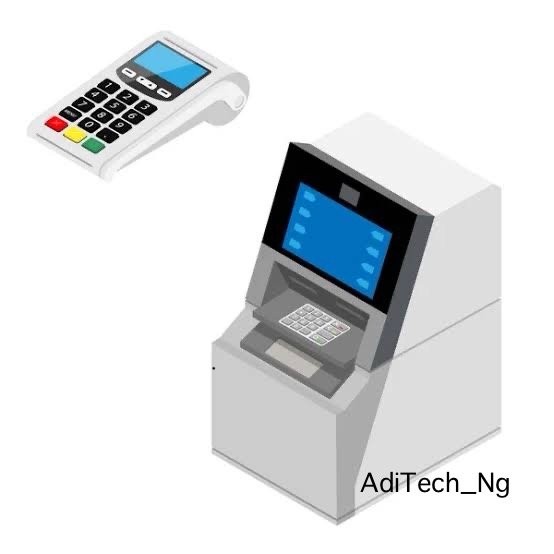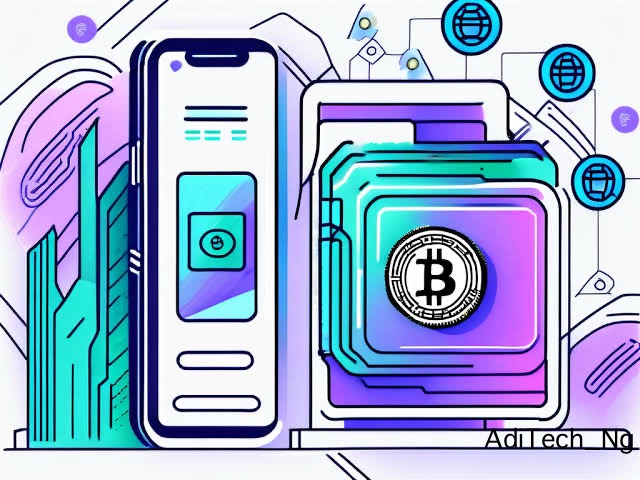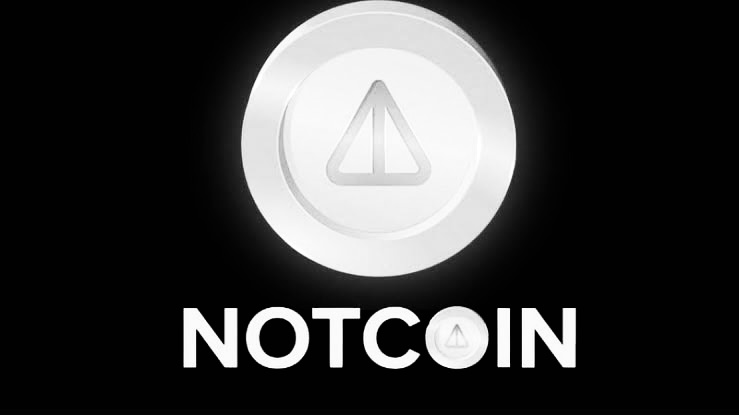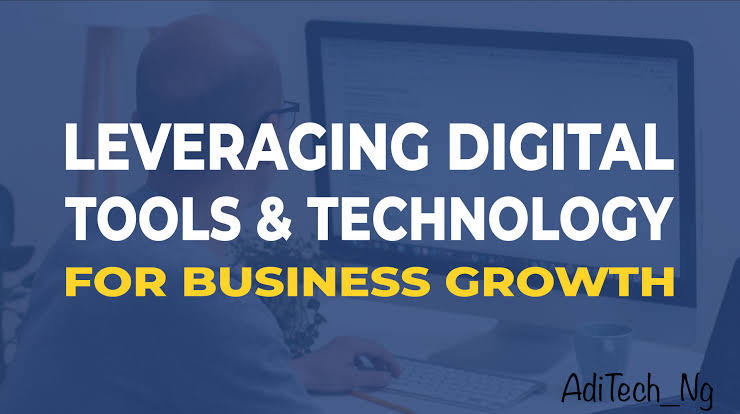The evolution of payment systems, from traditional methods like ATMs and POS machines to top notch technologies like blockchain and cryptocurrency, reflects the ongoing innovation reshaping global finance. This transition creates possibilities for businesses and consumers alike, fostering seamless and secure transactions. To answer the question about local businesses responding to Tech Evolution on Payment Systems:
Do I think small businesses in my area can effectively integrate crypto solutions without disrupting their existing systems?
Well, one could say, like the ATM and POS integration worked years ago for quicker and faster business transactions, there’s belief and potential for both to work hand in hand, creating a more seamless and innovative approach to business operations.

Yes, of course! In the changing world of technology and business, staying informed and adaptable is crucial. As a Nigerian businesswoman navigating the realms of technology, cryptocurrency, and finance, I’ve learned that patience, steady growth, and real world experience are indispensable for success. These traits have shaped my perspective on Point of Sale (POS) machines, blockchain technology, and the future of monetary transactions.
In this article, I’ll discuss the relevance of POS machines in Nigeria, their imminent decline, and how blockchain technology and cryptocurrency will reshape our financial systems. My insights come from firsthand experience, and my goal is to shed light on the trajectory of financial technology in Africa and beyond.
The POS Era: A Technology on the Brink of Obsolescence
Point of Sale (POS) machines, much like Automated Teller Machines (ATMs), have had their golden era. In Nigeria, POS machines became a lifeline for seamless financial transactions during times of limited access to physical banks. They emerged as a practical solution to bridge the gap between traditional banking and everyday financial needs, especially for individuals in rural or underserved areas.
Today, POS vendors are everywhere. From busy urban centers to the most remote villages, these machines have become a staple of our financial ecosystem. Nigerians rely on them to avoid the stress of traveling to banks, queuing for hours, or dealing with cash shortages. For many business owners like myself, POS machines have provided significant monetary advantages, helping to streamline operations and meet customer demands.
However, the days of POS machines dominating our financial landscape are numbered. The technology has peaked, and its relevance is slowly declining. Just as ATMs faded into the background with the rise of mobile banking, POS machines will inevitably be replaced by more advanced technologies. The world is evolving, and Nigeria, as part of the global financial system, will not be left behind.
In fact, I’ve already experienced this shift. On several occasions, I’ve traveled to distant places without carrying cash, relying solely on my phone for transactions. While the convenience of POS machines cannot be denied, their limitations, such as frequent network glitches and reliance on telecommunication providers, increases the need for more robust solutions. i’m pretty sure this reason’s and more brought about the exploration of this amazing technology ….
Blockchain and Cryptocurrency: The New Frontier
As POS machines inch closer to their obsolescence, the spotlight shifts to blockchain technology and cryptocurrency. While these innovations have gained global attention, there’s still much work to be done to bridge the knowledge gap and make them accessible to the average person.
Blockchain:
Let’s start with blockchain, the backbone of cryptocurrency. At its core, blockchain is a decentralized ledger that records transactions securely and transparently. Its applications extend far beyond cryptocurrency, offering solutions that can revolutionize various industries.

For example, consider these practical blockchain-based products that can benefit even the most rural African communities:
- Digital Payments
- Mobile money wallets: Apps like M-Pesa in East Africa and MTN Mobile Money in West Africa allow users to send, receive, and store money using their phones.
- Blockchain-based remittance platforms: Services like BitPesa enable cross-border transactions, making it easier and cheaper for individuals to send money to loved ones.
- Identity Verification
- Digital identity cards: Platforms like uPort provide individuals with secure digital identities, which can be used for financial services or governmental processes.
- Vaccination records: Blockchain based solutions like Medibloc store and verify vaccination records securely, ensuring access to healthcare services.
- Supply Chain Transparency
- Farm-to-table tracking: Platforms like AgriLedger help farmers track their produce from the farm to the final consumer, ensuring transparency and fair trade.
- Education and Skills Development
- Digital certificates: Blockchain powered platforms like Blockcerts allow individuals to store and verify their educational qualifications, opening doors to better job opportunities.
Cryptocurrency and the Future of Transactions
Cryptocurrency represents the next leap in financial technology. However, despite its growing popularity, many people’s understanding of cryptocurrency remains superficial. Terms like Bitcoin may be familiar, but the underlying concepts are often misunderstood.
To truly unlock the potential of cryptocurrency, we must prioritize education and awareness. Explaining blockchain technology in simple terms and showcasing its practical applications will demystify this innovation for the average Nigerian. When people see how cryptocurrency can improve their lives by offering secure, fast, and borderless transactions, they’ll be more inclined to adopt it.
Integrating POS with Blockchain: A Temporary Step
Interestingly, some innovators are exploring the integration of blockchain technology with POS systems. This could allow for cryptocurrency transactions via POS machines, bridging the gap between traditional payment methods and blockchain based solutions.
While this idea is intriguing, I believe it’s a temporary fix. The future of transactions will likely move beyond physical devices like POS machines. Just as smartphones revolutionized communication, the next wave of innovation will make even phones redundant. Imagine a world where our identities and accounts are seamlessly integrated into digital ecosystems.
A Vision of the Future
The future of monetary transactions is one of simplicity and sophistication. Picture this: you walk into a store where robots handle everything from customer service to payment processing. No wallets, no phones just you. Advanced technology scans your eye or facial features, deducting the payment directly from your digital account.
This vision may seem futuristic, but it’s not far-fetched. The combination of artificial intelligence, blockchain, and biometric technology will make it possible. As we move towards this future, POS machines, and even phones, will become relics of the past.
Concluding My Thoughts
As an entrepreneur and blogger, I’ve learned to embrace change and adapt to new realities. The POS era has been instrumental in Nigeria’s financial evolution, but its time is coming to an end. Blockchain technology and cryptocurrency hold the key to a more inclusive, efficient, and futuristic financial system.
The journey to this future won’t be easy, but with patience, education, and steady progress, we’ll get there. Nigeria, and Africa as a whole, has the potential to lead this transformation, setting an example for the rest of the world.
The question is: are we ready to embrace the future? Because it’s coming, whether we’re prepared or not.
This article not only reflects my experiences and insights but also invites you, to join the conversation. Let’s shape the future together, one step at a time.
Discover more from AdiTech
Subscribe to get the latest posts sent to your email.





